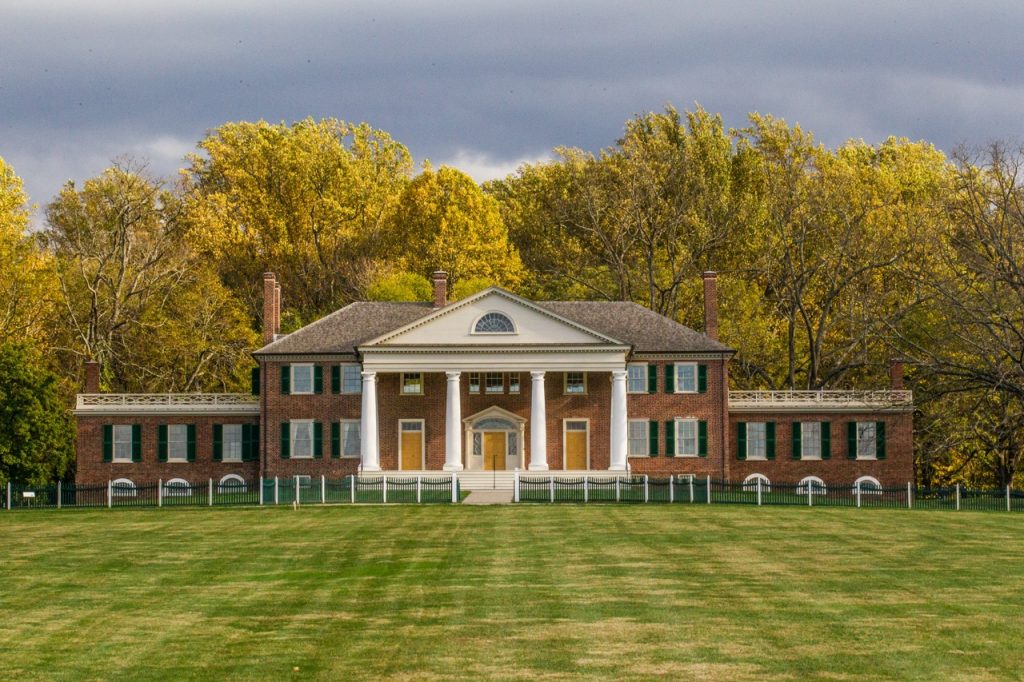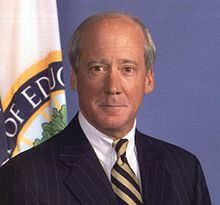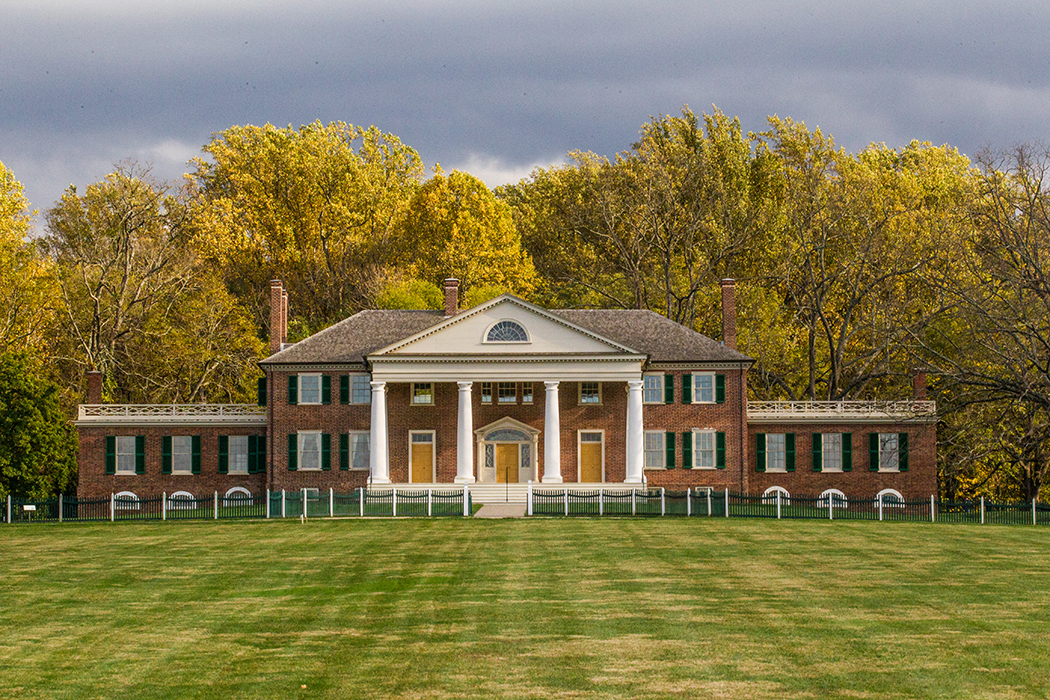Your move, Montpelier Foundation. That was the message delivered by the Montpelier Descendants Committee at an April 28 press conference announcing a slate of 20 candidates for nine spots on the Montpelier Foundation board and demanding the reinstatement of fired staff members who led the archaeological work at the fourth U.S. president’s former home.
The MDC’s list of board nominees descended from enslaved workers at Montpelier was offered amid an escalating conflict between the MDC and the foundation board over the board’s June 2021 vote to create “structural parity” with descendants by allowing MDC to recommend at least half the foundation’s board members.
“Throughout the Black community in the country, a lot of folks have been paying attention to the developments at Montpelier,” says MDC’s attorney Greg Werkheiser, co-founder of the Richmond-based Cultural Heritage Partners law firm. “And when we reached out to a lot of the luminaries…across public policy, politics, history, law, journalism, finance, philanthropy, and we said, are you willing to jump into the fray here and help us resolve this and return Montpelier to a reputation of respected leadership? You know, the vast majority of people said yes.”
Among the names on the MDC’s list are journalist Soledad O’Brien; Michael Blakey, National Endowment for the Humanities professor of anthropology, Africana studies and American studies at The College of William & Mary; and Reverend Cornell Brooks, former CEO of the NAACP and professor at Harvard Kennedy School.
Their willingness to serve, Werkheiser says, is “a testament to how important they think that resolution of this situation, this crisis at Montpelier, is not just for Montpelier, but as a representative of the struggle that a lot of cultural sites are going through around the country and what the implications are nationally for solving this problem locally.”
Much of the conflict’s resolution now rests on the timing of the installation of the MDC-recommended board members. After initially blaming the MDC for the communication breakdown as national outrage mounted in early April, foundation board chair Gene Hickok and Montpelier CEO Roy Young offered a compromise. The board would select nine new MDC-recommended members from a list of 15 names. The catch? The new MDC-recommended board members would be installed in two tranches. Some would be fully installed in July, while the others would take their place on the board in October. MDC wasn’t satisfied with that offer.
“Essentially what it means is that they’re going to take these new board members and appoint them to the positions, but give them no power. And there’s a couple of reasons they’ve offered for that, none of which passes the smell test, frankly,” says Werkheiser. “If they do do that, they would essentially be preserving their voting majority, the current board’s voting majority, for months. And they would have the opportunity, once the press turns its attention away from this controversy, to simply reverse any of the commitments they appear to be making in public now. And they can also continue to fire people as they’ve been doing.”
On Monday, May 2, the foundation appeared to capitulate to the MDC’s demand. “The board agrees to vote on the MDC nominees, as proposed by the Committee, with all assuming active Board membership at the same time,” a new foundation statement reads. Werkheiser responded to the new statement with a request for confirmation that all nine new MDC-nominated candidates will be voted into service and have full voting powers effective at the close of the May 16 meeting; that the only business that will be taken up on May 16 is the vote to install the nine new members; and that the membership status of current board members will not be considered on May 16. He had not received a response from the foundation by C-VILLE Weekly press time.
The new foundation statement does not respond to the MDC’s other demand—that Montpelier staff who were fired after speaking out on behalf of descendants be reinstated.
Those firings have created a “culture of fear,” according to a statement signed by “a majority of full-time and a growing number of part-time Montpelier staff” on the new website, montpelierstaff.com. The staff statement alleges archaeological digs have been abandoned, data is at risk, and it accuses foundation board leadership of violating federal law.
The toxic atmosphere at Montpelier began under the leadership of Young, who became CEO two years ago, according to one of the longtime staff member who was fired.
“It became rapidly clear they had their own ideas,” says Matthew Reeves, who worked at Montpelier for 22 years and served as Montpelier’s director of archaeology and landscaping restoration until his firing April 18. “There wasn’t a lot of time and care spent understanding the institutional history of work we had done with the community.”
Reeves says Young and Hickok were concerned about losing a million-dollar state grant awarded to Montpelier for memorialization of the lives of enslaved workers. That fear led to the board’s historic vote for structural parity with the MDC in June 2021, but Reeves describes it as “contentious.”
“That was a vote that they were forced into not only because of the $1 million grant, but also there were several staff, including myself and [Montpelier Vice President Elizabeth Chew], who threatened to resign if the board vote was no. And this was presented to the board…during that board meeting. And that turned the no vote…into a yes vote. And so this conflict had been simmering for a year by the time that vote happened,” Reeves says.
In an email response, Young claims the data and archaeological sites are being protected by experts, but Reeves says the situation at Montpelier makes it unlikely the archaeological work can continue.
“At this point, it would be very difficult for this board under the current leadership to ever hire archaeologists again,” he says. “You just look at what archaeological organizations all across the nation have written, and censured what Montpelier is doing with the descendant committee. I am not going to rest until all of the…data is safely put away and protected.”
The foundation’s actions have also rattled donors, including Orange County farmer Bill Speidan, who first visited Montpelier as a child in the early 1940s. Speidan says he’s been an annual donor for many years, knows Reeves and the other staff members who were fired, and has been shocked by what has unfolded.
“It’s unconscionable to fire people that have been…with you 22 years doing their job,” he says, noting that Young is the first Montpelier Foundation CEO he’s never met. “I would certainly hesitate to donate further if they do not take advantage of what work Matt Reeves and others have done there,” he says.
The foundation’s new statement doesn’t mention any change in leadership, but it does strike a conciliatory tone. “The path to parity requires a spirit of collaboration,” it reads. “We look forward to that collaboration and to working together for the benefit of Montpelier.”

Could the National Trust revoke Montpelier’s lease?
Dozens of national historic organizations have publicly condemned the Montpelier Foundation board’s recent actions. Among them is the National Trust for Historic Preservation, which owns Montpelier and leases it to the foundation in a cooperative agreement.
The agreement was signed October 1, 2000, and provides a lease that renews every five years. That makes the next renewal date October 1, 2025.
C-VILLE Weekly legal analyst Scott Goodman reviewed the lease and says the National Trust may have the power to take action against the foundation.
“In my opinion, nothing prevents the trust from doing anything it
wants to do in this situation, given the apparent threat to the viability
of Montpelier and arguable inability of the foundation to continue to carry out Montpelier’s mission. Carrying out that mission is the very purpose of the lease,” he explained.
But in an email, National Trust spokesperson Matt Montgomery says the agreement doesn’t allow the trust to revoke the lease.
“It places the ability to revoke with the foundation only,” Montgomery says.
While straight revocation of the lease may be in question, the agreement contains provisions for dispute resolution between the foundation and the National Trust.
In the event of a dispute, the agreement calls for the creation of a task force consisting of three members: one appointed by the foundation, one appointed by the trust, and one appointed by agreement of both. The task force has three months from formation to make a binding recommendation for resolving the dispute.
The National Trust declined to comment on whether it will activate the dispute resolution clause.—Courteney Stuart




